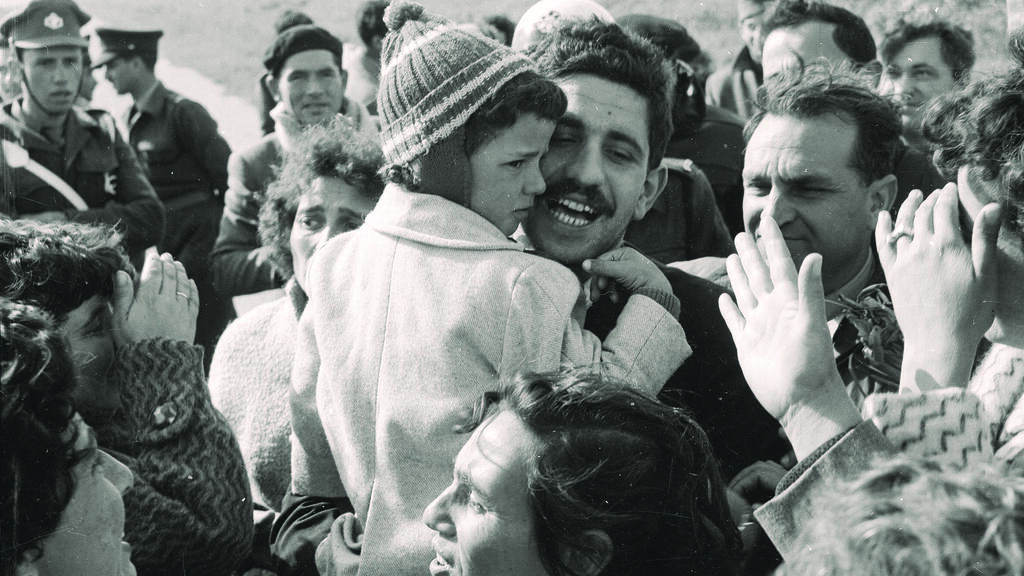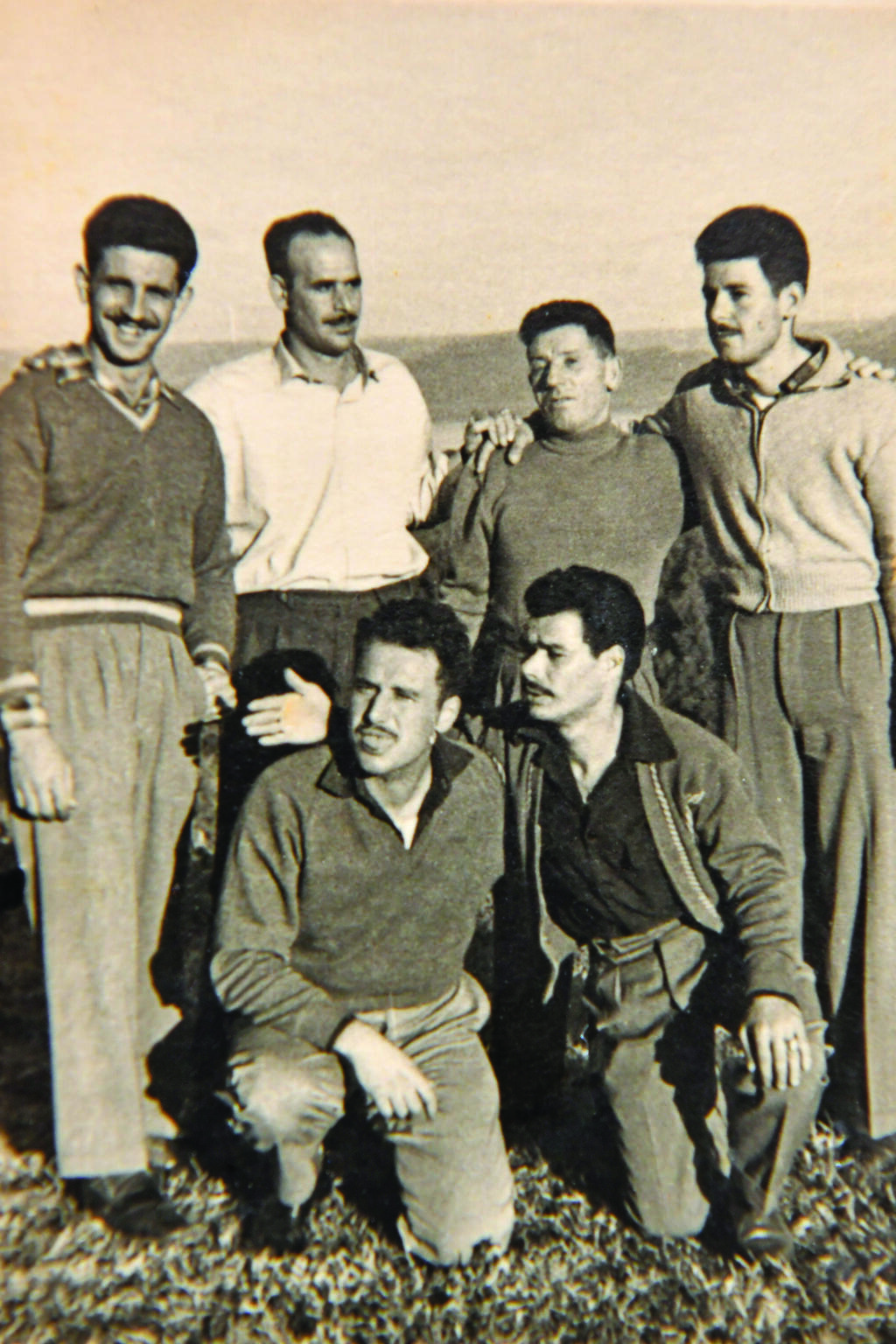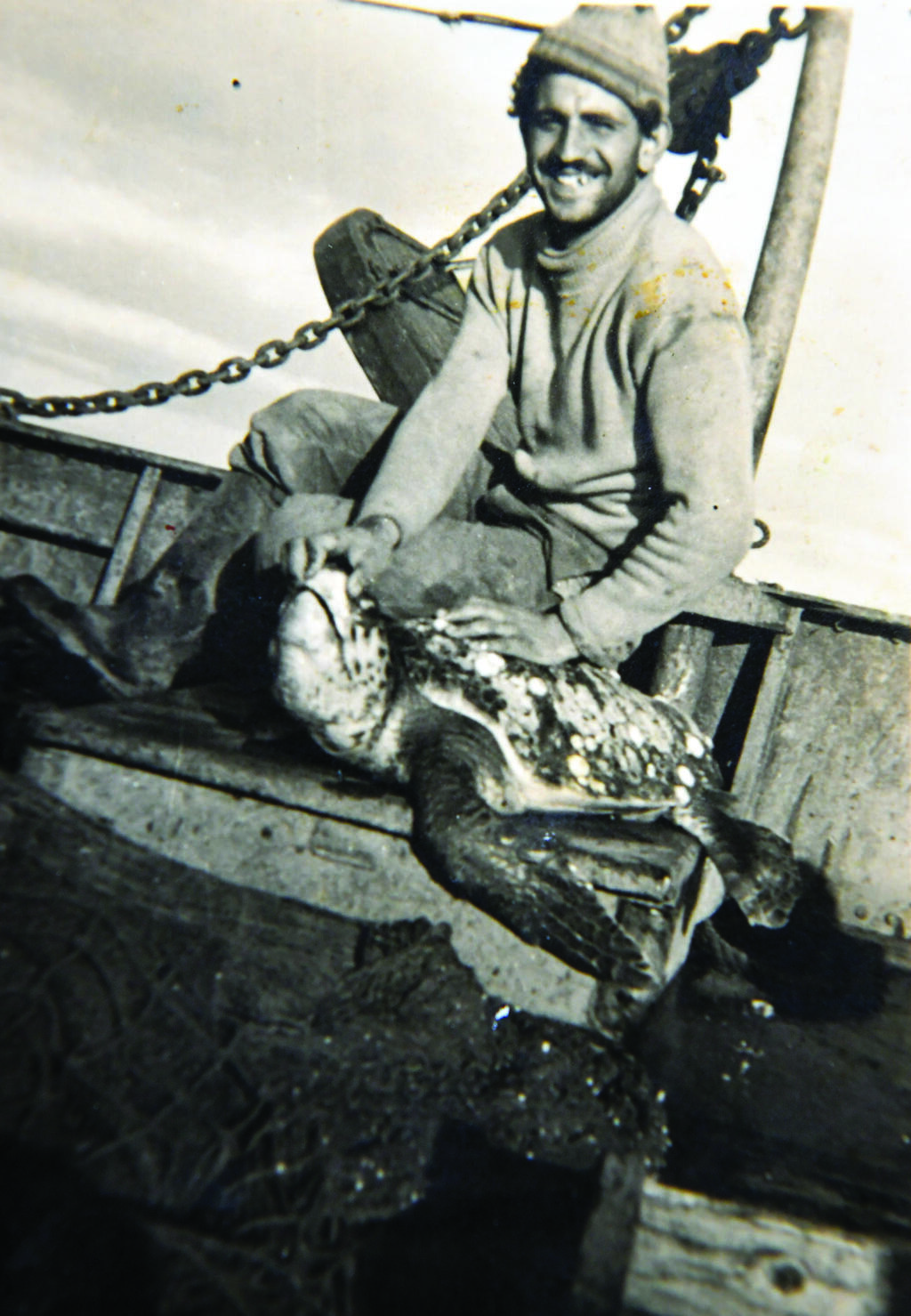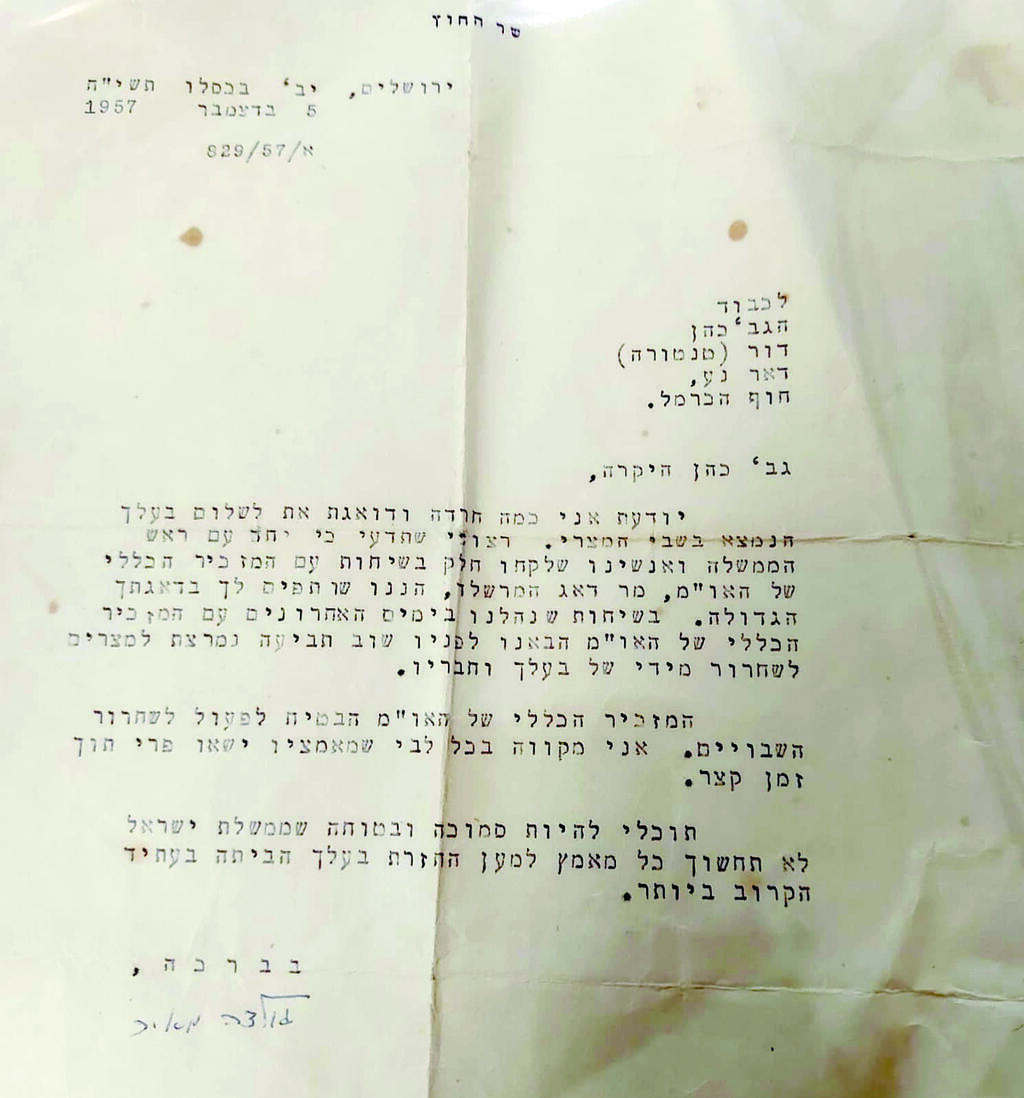Shoshi Steinman can’t bring herself to watch videos of or news reports about the hostages in Gaza. “I switch channels when they start talking about the hostages on TV” she says. “Even when people are just talking about it, I get up and leave. I can’t deal with the hostage situation and can’t imagine what they’re going through. At first, I didn’t know why, but then I realized I was still harboring trauma.”
She’s a 70-year-old retired nurse from Kiryat Bialik and she works for the Kivunim foundation that supports high functioning young people with disabilities lead independent lives in the community. She has two sons and four grandchildren and has been in a relationship for many years.
The trauma she’s been carrying for 67 years relates to an episode long forgotten by Israel’s collective memory: In September 1957, the Egyptian navy captured the Doron shipping vessel off the El Arish coast. Steinman’s father, the late Eliezer Cohen, was the ship’s chief mate. He was imprisoned along with five further crew members: The Italian ship master Gennaro Cicoletto, Moshe Baruch, Yitzhak Shaul, Israel Dadon and Gad Weinberg. They spent 125 days in an Egyptian jail and were returned to Israel as part of a prisoner exchange deal. Cohen and Shaul were members of Moshav Dor. Dadon lived in the Kordani ma’abara and Gad Weinberg lived in Haifa. Moshe Baruch (then 32) and Eliezer Cohen) were brothers-in-law, married to sisters Dora and Hava. The couples each had a son and daughter at the time.
“When my father was taken hostage, my brother Natan was only two months old and I was four,” she says. Despite being so young at the time, she’s engaged in the matter and keeps her father’s documents in a private archive.
She spent her early childhood on Moshav Dor. Her father Eliezer had made Aliya from Greece with his family in 1949. “They ended up on Moshav Dor where the State of Israel offered the options of fishing or farming. My father became a fisherman,” she says. “There was a community from Greece on the moshav where he met my mother Hava and they got married when she was 18 and he was 19. When I was born, they named me Rosa after my paternal grandmother who perished in the Holocaust. My family still call me Rosa. My aunt, Dora and her husband Moshe Baruch had a baby daughter four days before I was born. The brothers-in-law worked together on the Doron fishing boat. Riki, my cousin, and I grew up as sisters, as we still are.”
What do you remember from your childhood?
“All of us – our grandfather and grandmothers, aunts, uncles and cousins - lived as one big, happy, loving tribe. But being the daughter of a fisherman means living with constant yearning. I was ‘Daddy’s little girl’. Although he was away a lot, I very much felt his influence. All my values and who I am today is my father. He was loved and respected, a special person with lots of charisma and a love for people.”
“My mother didn’t work outside the home, raising us and running the household. My father would board a ship for a week or two, come back for a few days and then board another. We never knew when he’d be back. When he’d return, always carrying lots of fish, we’d run to him, he’d put down the baskets and hug us the way only he could. Even before showering, he’d clean and fillet the fish he'd brought, prepare bags for family and friends, and generously distribute it all. It was always a big celebration whenever he was home. He would sing and tell us bedtime stories and give us lots of kisses. He was the backbone of the family even when he wasn’t there in person.”
On October 23, 1957 her father fell into Egyptian captivity. “It was just before Rosh Hashana,” she says. “My father had been at sea for some time and was due to come home. The ship, that belonged to the Jewish Agency and was operated by Nachshon, unloaded a cargo of fish at Jaffa port and returned to sea. The following day, the ship radioed in that that they’d caught a ten-crate haul in their nets. The ship went silent after that.”
“I only later learned later what happened then. When the ship was by the Al Arish coast where the fishing was good, within Israeli territorial waters as they kept emphasizing, a foreign ship approached the Doron its sailors, and raided the ship.
It later became apparent that this was an Egyptian torpedo ship and they were taken hostage. “
How was your family notified?
“As far as I understand, they didn’t know what had happened to them at first and suspected the worse, but they found no signs of the ship being sunk. I remember long, tense, days of tears. At some stage, my mother told me that my father had been taken hostage by Egypt. I didn’t know what either ‘Egypt’ or ‘hostage’ were. I just knew I missed my father.”
Did your family have any contact with the hostages?
“I have a letter dated October 15, 1957 that my mother wrote to my father and passed it on via the UN. A month after taking the hostages, the Egyptians allowed letters and packages to be delivered via the Red Cross.”
While your father was in captivity, did the state support your family?
“I’ve no idea. There was food at home and we had support from friends and the community. Alongside the fear and the worry, there was also a routine and a feeling that the government was working on it. In a letter dated December 5, then foreign minister, Golda Meir wrote to my mother: ‘The UN Secretary General has promised to work toward freeing the hostages. I hope with all my heart that this will bear fruit very soon. You can rest assured that Israel’s government will spare (misspelled) no effort in bringing your husband home in the nearest future.’ This definitely boosted my mother’s confidence.”
The six Doron hostages were released on January 27, 1958 after spending four months in captivity. The ship itself remained in Egyptian hands. “When the hostages returned nearly the entire moshav went to greet them at the Israel-Egypt checkpoint. They took me with Riki and Asher, Uncle Moshe’s children. I was holding a huge bunch of gladiola that was nearly as big as me. I remember my father taking me in his arms and lifting me up high. I can still feel his kiss with his bristly beard. He was thin and emaciated and with a drooping face but I didn’t hold back. He was my beloved father and I missed him very much. He only saw Natan when we got home. He was two months old when my father was kidnapped and six months old when he came back.”
How did he settle back into life?
“It looked like he returned to normal life and the family and community received him with a great deal of love. He had pneumonia for a long time and my mother later told me he’d would scream and have nightmares. I didn’t know about it at the time, but I saw the scars on his back, but he was dismissive when I asked him about it. He very much toned down his experiences there. He’d sometimes talk about eating Meluhia (an Egyptian dish) once a day and that there were times they were held in dungeons and tortured on a daily basis. When my son interviewed him for his family history (shorashim) school project, he talked about being severely beaten, electric shocks and being hit with pipes. He said that the hatred of the Egyptians, especially that of the ordinary soldiers, toward Israelis was enormous and he attributed it to the Sinai campaign the previous year.”
Soon after her father’s return, the family left Moshav Dor. “I started first grade in Kiryat Haim. My uncle, aunts and cousins left with us. My father’s side stated on the moshav and they’re still there.”
Did you tell people who didn’t know that your father had been held hostage?
“Definitely not. My father kept it inside. He was strong on the outside and didn’t delve deep. We didn’t talk about it at home. I only found the documents about the captivity after my parents’ deaths. To this day, I have the pajamas we sent him via the Red Cross, with a hidden note inside – and I don’t know who wrote it - reading ‘The day will come’.
Was he afraid to go back fishing?
“He had no choice. It was the only profession he knew. He also said that if you love the sea, you never leave. And he remained in the sea and worked hard until over the age of 60. The Doron fishermen got a new ship named Zvulun on which they worked for years until retiring. When my father was 58, the ship was sold and he joined the Israel Oceanographic and Limnological Research Institute and worked on the Shikmona sailing the Mediterranean shores for research purposes. He was happy with his lot in life.”
Have you stayed in touch with the families of the other hostages?
“The Italian captain Gennaro flew to Italy for his daughter’s wedding that had been postponed and stayed there. My father stayed in touch with the others, but I don’t myself remember any contact with the other captives – apart from my Uncle Moshe and his family, with whom we’ve remained close until now.”
“My parents were a wonderful couple who loved life and Greek music. Sadly, my father died at 73 and my mother died, I think of a broken heart, six weeks later aged 72. On their tombstone, they wrote ‘They Never Parted, In Life or Death’. My brother Natan and I are honoring my father’s will instructing us to ‘never part’. My brother, who’s a married father of four and grandfather of seven, served as a professional soldier until retirement. “
Riki Pilarski (70), Steinman’s cousin and Baruch’s daughter, now lives in Haifa. She’s divorced, mother of two and a grandmother of five. “Our father was also away from home on long fishing trips that sometimes got to Turkish shores and my mother was the dominant one at home” she says. “He wasn’t the kind of father to give hugs and he wasn’t involved, but we loved him very much and we always missed him. Living close to the extended family meant we had a wonderful childhood.”
Asher Baruch (73) from Haifa, divorced father of two and grandfather of five adds “I was the first child born on Moshav Dor. I remember in September 1957, when I was seven, I was told that my father’s ship was about to return and my uncle and I went to the Kishon port to meet my father, but the ship didn’t show and I was very disappointed.”
When were you told your father had been kidnapped?
“I don’t know when or how we were told that my father and the other fisherman had been captured by the Egyptians. But what did I, a young moshavnik child who hardly spoke Hebrew as we spoke Greek at home, understand?” I didn’t understand the situation. But I quickly realized that what it meant to us was that our father wouldn’t be home anytime soon.”
How did your father’s captivity affect you?
Riki: “I was four and I don’t remember much. I do remember the whole family rallying up to help, not leaving us alone for a moment. We felt embraced. We also trusted the wonderful Golda Meir. She made us feel everything would be okay.”
Asher: “I started having nightmares. I’d scream in my sleep and I started sleepwalking, wondering around the neighbors at night.”
This is confirmed by Yedioth Ahronoth reports from January 23, 1958 on their return from captivity. “For four months, seven-year-old Asher hasn’t had a single good night’s sleep. He’s been waking up nightly crying out ‘Daddy! I want Daddy. Where’s my daddy?’ Last night, after being told his father was coming home, he slept through the night.”
Did you get any treatment for these nightmares?
Asher: “They didn’t treat anything in those days.”
Do you remember meeting your father when he was released?
Riki: “They dressed me up all nice. I felt like a princess. I remember my mother being so touched that there were lots of people. The hostages were dressed in jackets. We didn’t really have time to enjoy the reunion. They were quickly taken away.”
Asher: “I remember my father lifting us in his arms and they took him away for a press conference.”
How was your father when he came back?
Asher: “He had no joy. Only when we went back to Tantura, to the moshav, did they tell him that his mother, who had played a very dominant role in his life, had died a few days before his release. His brothers were granted a special dispensation so shave to greet him, to soften the blow. But he was extremely sad about not seeing his mother before she died.”
Riki: “My father was withdrawn and mostly sad. He didn’t talk about his time in captivity. Our fathers were tough seamen who spent their whole lives battling storms and waves. This is how they treated the human storm around their captivity. Like Shoshi’s father, he got back to sea very quickly. He needed to support the family and fishing was the only option.”
Did you father get any mental health treatment when he came back?
Asher: “No.”
Riki: “If he did, it was kept away from us children.”
Did he later talk to you about his time in captivity?
Riki: “When were older, he told us about being beaten and tortured.”
Asher: “They were very strong people. Men like Greek men should be.”
Do you feel being the children of ransomed captives has left scars?
Riki: “I don’t know.”
Asher: “We were cheerful children busy with our own stuff. Who had time to deal with the fact that our father had been held hostage? The main thing was that he was back.”
Has the current war brought your personal story to the surface?
Riki: “I don’t connect it to what happened to us. The fishermen were taken hostage by a country. There was someone to talk to. Now, it’s a murderous terrorist organization and we’re talking to the wall. The current trauma is very hard for me. If I watch a short video about the hostages, I then need to take a sedative. It affects be very badly. But I don’t think the two are comparable.”
This article was inspired by the January 1958 Laisha issue #565 front page displaying a picture of a young couple, with the headline “The Boys Are Back.” The article reads “Doron Mechanic Shaul Yitzhak Embraces Fiancée.” This piqued our curiosity and we decided to look into it.
With the help of Moshav Dor secretary, Itzik Cohen, I found Shoshi Steinman’s cousin, Eliezer Cohen’s daughter. When I asked Shoshi if she knew what happened to the other Doron fishermen, she explained that she had only had contact with Itzik Shaul, a few years back.
“Itzhak Shaul? The one on the Laisha cover?” I was so happy. “You have to help me find him!”
Shosh was in. Two days later, she called in the evening, sad and broken. “You won’t believe it. He died this morning,” she said. ”I spoke to his widow, Rivka. The funeral’s tomorrow. But she’s agreed to talk to you during the shiva.”
I excitedly called Rivka Shaul who worked as a clerk at a law firm until the age of 80. “Do you remember the Laisha cover?” I asked and I got an answer I wasn’t expecting. “That’s not me,” she said. “He had a different girlfriend, Sarah. I wasn’t a part of his life at the time. They broke up after he came back. I entered the picture later. We got married in 1959 and had three sons and we have ten grandchildren. We were married for 65 years, until he passed away aged 94.”
Did he carry on being a fisherman?
“He worked as a fisherman until he was almost 70. His last words were ‘There are lots of fish in the sea’.”





